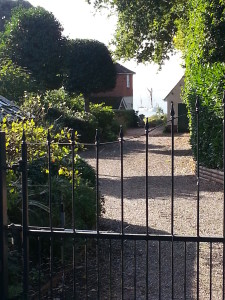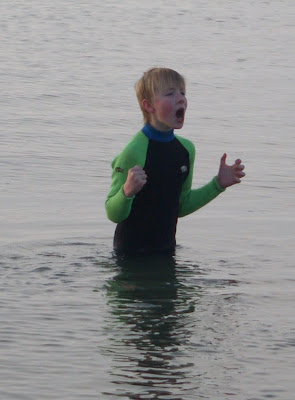Look at that comedian Russell Brand, he must be having a laugh. Who is he to think he can talk about politics? Doesn’t he know that you have to be qualified in order to have a political opinion? You need to be a professional politician, otherwise your views are illegitimate. Get back in your box and go back to amusing the masses – leave the political issues to your wise masters. Everything is fine. Go back to sleep…
It has been fascinating watching the reaction to Russell Brand’s recent political interventions – his editing of an edition of the New Statesman, his interview with Jeremy Paxman. Clearly he has struck a nerve; something that comes from having the nerve and keeping his nerve I guess. I have particularly enjoyed his emphasis upon the spiritual side of politics. Consider this: “Total revolution of consciousness and our entire social, political and economic system is what interests me, but that’s not on the ballot.” Yes, me too. In other words, it is the interplay of the spiritual and the political that most commands attention, and it is the rigid separation between the two that has blighted both.
The nature of the crises that we face – the loss of democratic legitimacy, the collapse of faith in the political process, especially amongst the young, the collapsing ecology driving the collapsing economy – these things cannot be addressed effectively unless they are considered from a wholly human point of view. By ‘wholly human’ I mean one that draws upon an analysis grounded in a full humanity – not one that simply sees us as interchangeable fleshly cogs within the military-industrial complex. There is more to being human than simply being a convenient source of purchasing power, provisioning the onward march of industrialism.
We need to have the revolution of values about which Brand talks, one which actually places us within a wider human and ecological context, and where the virtues of personal freedom and the free market are deployed in order to serve the wider human interest. This can be done; indeed, for much of human history, it was done. Sadly, we are at the tail end of many decades of ideologically driven institutional change which has turned much of our rich human ecology and culture into an ashy wasteland. It is only in this context that the fool can come and speak the truth, because his foolishness is what enables him to slip past the established guardians of acceptable political opinion.
What, after all, is the principal role of the fool? The court jester, the one who is given unique powers of truth-telling, the one person who can speak truth unto power – the antidote to the sycophancy and closed-loop thinking processes which so deform any institution that has remained static for too long; and, surely, that is a description that applies to our political process.
We are in very interesting times. The governing narratives that have dominated our political and cultural life for nearly three centuries have exhausted themselves and no longer have the moral capital to command our assent or our energies. We are in a period that is post-secular, for the rejection of the divine bankrupted itself long ago. We are in a period that is post-growth, for the abundant and cheap supplies of energy and other resources on which such growth depended have now been drawn down. We are in a period that is post-modern, for the assumptions about progress and an ever-improving path of development have been shown to be simply bad theology in fashionable dress.
We simply will not be able to understand our world or improve our condition unless we re-integrate our spirituality and our politics. We will not be able to assess the worth of any particular political project – or any particular politician come to that – unless we have some standard or reference against which that assessment can be made. What is that standard or reference? Well, that is the conversation that we need to be having. Is it the case that we still believe a constant search for economic growth is the answer to our problems? I doubt that many people believe that to be so, but I really wish that someone would tell that to our political masters so that they don’t spend quite so much time with their ritual incantations about a ‘return to economic growth’ which actually end up making people more miserable, not to mention the impact upon the wider ecology on which we all, ultimately, depend for our lives let alone our livelihoods.
The separation of the political and the religious is, in fact, a particular quirk of North-Western European Protestant culture. In any other society the idea that these things can be separated would be ridiculed for the folly that it is, yet in our society it remains the default assumption of “common sense”. There are particular reasons for this – principally the way in which the supposedly religious wreaked great violence upon each other in our civil war – yet the root issue is that one particular political grouping excluded the religious from the political sphere in order to more thoroughly establish their own powers, to make our world safe for the corporation. This is why, in this country, it is seen as not quite the done thing for the religious to speak out on political matters; why there is still a frisson when the Archbishop criticises Wonga, for example.
Yet it is because the Archbishop is being true to his own vocation that he has to speak out. Even the most random reading of the Bible will reveal some of the thousands of verses dedicated to social justice. It is simply not possible to be a Christian and not to have a political concern. That is not to determine what form that political concern takes – that was the mistake of those who slaughtered in our civil war – but it is to insist that the religious and the political cannot be separated, that these spheres interact with each other and cannot be coherently understood on their own. The time for that separation has passed, and it now falls to this generation to work out a new understanding, and a new pattern of life. That, at least, is my belief, and my passion, and what I shall seek to be continually and foolishly true to.





You must be logged in to post a comment.